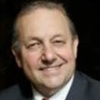Cross-Examining Economic Experts in Personal Injury Cases: Defense Strategies for Exposing a Weak Damages Case

Welcome! Strafford is now BARBRI! The expert courses you know from the trusted global leader in legal education.
Course Details
- smart_display Format
Live Online with Live Q&A
- signal_cellular_alt Difficulty Level
Intermediate
- work Practice Area
Personal Injury and Med Mal
- event Date
Tuesday, October 7, 2025
- schedule Time
1:00 p.m. ET./10:00 a.m. PT
- timer Program Length
90 minutes
-
This 90-minute webinar is eligible in most states for 1.5 CLE credits.
-
Live Online
On Demand
This CLE webinar will discuss which subjects provide the most benefit to defense counsel when cross-examining plaintiff's economic damages expert in wrongful death and personal injury cases and the best ways to approach these subjects either during a deposition or trial. The panel will also discuss when not to cross-examine the expert.
Faculty

Dr. Smith is a nationally renowned economist and financial consultant providing analysis in simple terms that any trier-of-fact can understand. As an expert consultant to plaintiff and defense attorneys representing clients in Federal State courts, he provides testimony and litigation support services in evaluating damages. Dr. Smith has developed state-of-the-art econometric analysis models to analyze economic and financial issues, including damages analysis for: Commercial damages of all types; Lost earnings capacity; Life care plan and other medical costs evaluations; Household services, including housekeeping, guidance, and accompaniment; Society Relationship; Loss of enjoyment of life – hedonic damages; Personal consumption and fringe benefits; Hedonic damages; Product liability; Pension fund evaluation and withdrawal liability; Structured settlement analysis; and identity theft and other types of credit damages. He has consulted for thousands of prominent firms nationwide.
Description
In a wrongful death or personal injury case, both sides can offer economic experts to substantiate the financial consequences of an injury. However, defendants frequently still choose not to offer economic experts at trial. Instead, they rely on cross-examination of the plaintiff's economist to glean concessions with which to argue that no or little confidence can or should be placed in the plaintiff's expert's opinion. Defense counsel need a quiver of strategies and techniques to lift the curtain on what they would like to argue is a flimsy damages case.
Economic expert testimony lends itself to a wide range of potential lines of cross-examination: expert credentials and "purchased testimony," speculative and unrealistic assumptions, overreliance on "averages" while ignoring the facts of the case or the plaintiff's actual habits and prospects, fantastical financial predictions, making the straightforward confusing, etc. The overriding goal of cross-examination is to leave the jury with the unshakable conviction that the plaintiff's economic expert has manipulated financial reality to inflate damages.
This can be a daunting task when the plaintiff's expert has done a thorough job and is well prepared. Further, counsel must find a way to keep the jury and court engaged because damages experts often testify late in the case after the record is as complete as possible.
Listen as this renowned panel of trial attorneys offers valuable and practical insights for strategic and surgical cross-examination of the plaintiff's damages expert.
Outline
I. Whether and when to object to admissibility under Daubert or FRE 702
II. Educating the jury on key economic concepts
III. Key topics for cross-examination
A. Qualifications
B. Credibility/integrity
C. Methodology
D. Assumptions
1. True wages and fringe benefits
2. Actual work-life expectancy
3. Household service and actual consumption
4. Medical or institutional inflation rates
5. Taxes
6. Investment experience of expert
7. Comparing prior projections in prior cases with actual results
8. Use of fictional or model individuals vs. actual plaintiff
9. Discount rates
IV. When to forego cross-examination
V. Tips for keeping the jury or judge engaged
Benefits
The panel will review these and other important issues:
- Does the jury get to determine things like the discount rate?
- What topics are not productive to go into on cross-examination?
- When should defense counsel not engage in cross-examination?
- What is the logic of not having a defense expert on damages?
Unlimited access to premium CLE courses:
- Annual access
- Available live and on-demand
- Best for attorneys and legal professionals
Unlimited access to premium CPE courses.:
- Annual access
- Available live and on-demand
- Best for CPAs and tax professionals
Unlimited access to premium CLE, CPE, Professional Skills and Practice-Ready courses.:
- Annual access
- Available live and on-demand
- Best for legal, accounting, and tax professionals
Unlimited access to Professional Skills and Practice-Ready courses:
- Annual access
- Available on-demand
- Best for new attorneys
Related Courses
Recommended Resources
Making Continuing Education Work for You, Anytime, Anywhere
- Learning & Development
- Career Advancement
Getting the Most Out of BARBRI Resources
- Learning & Development
- Business & Professional Skills
- Talent Development
